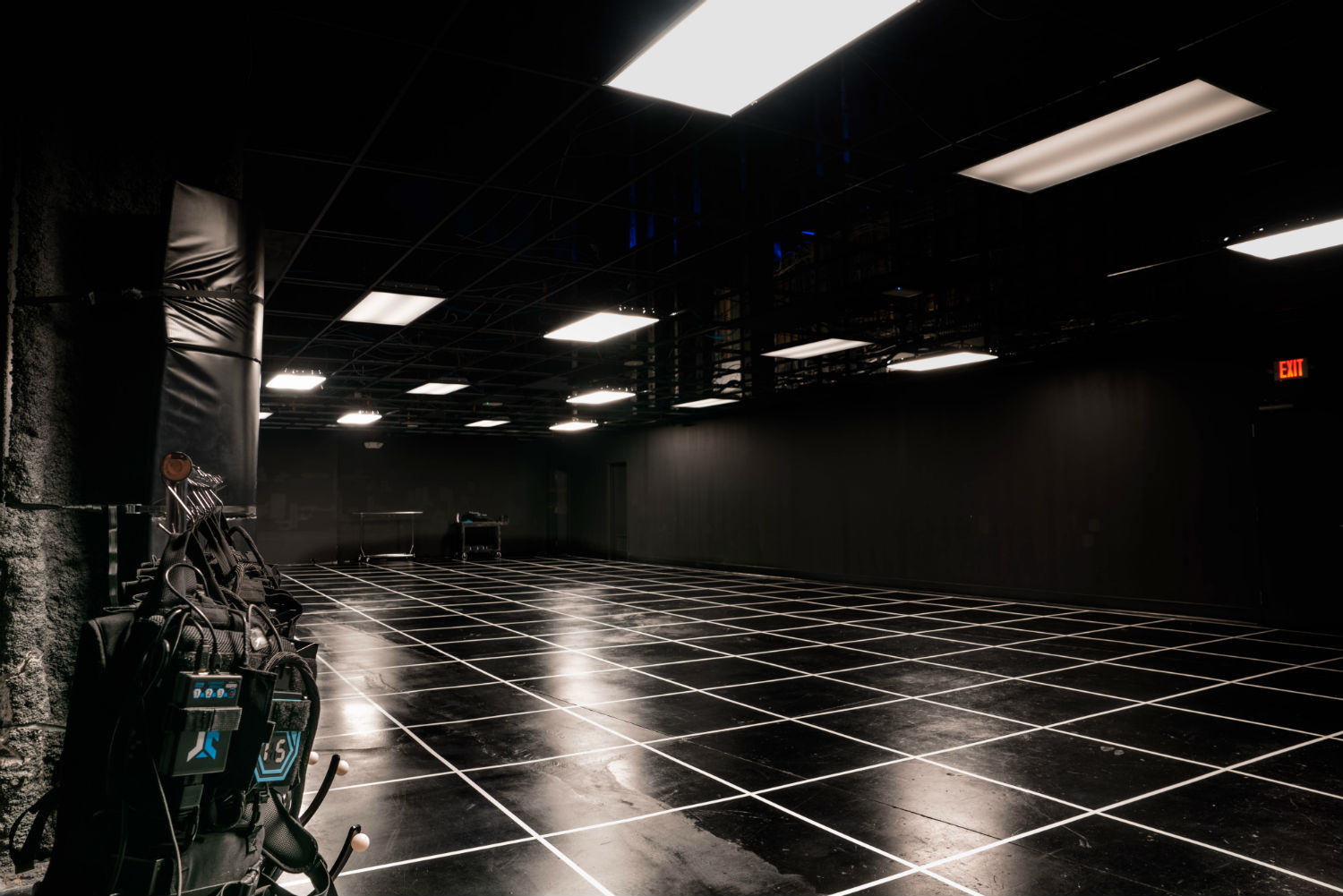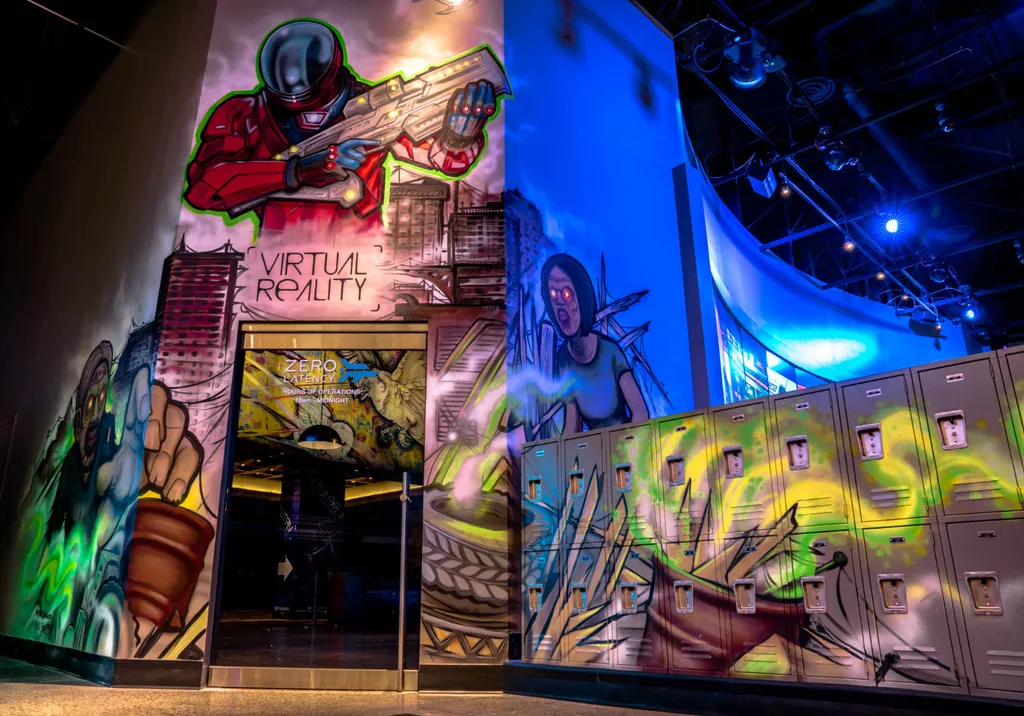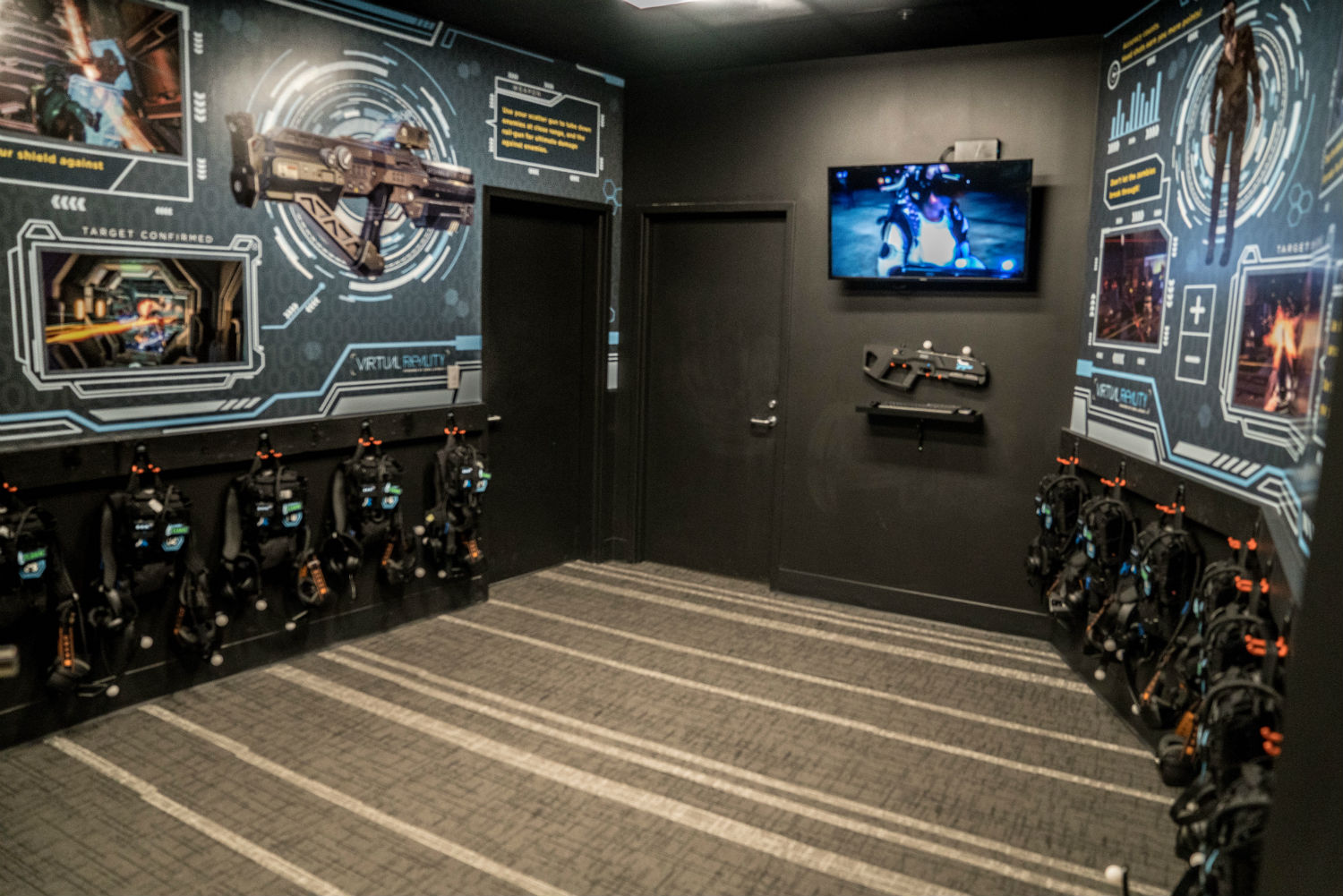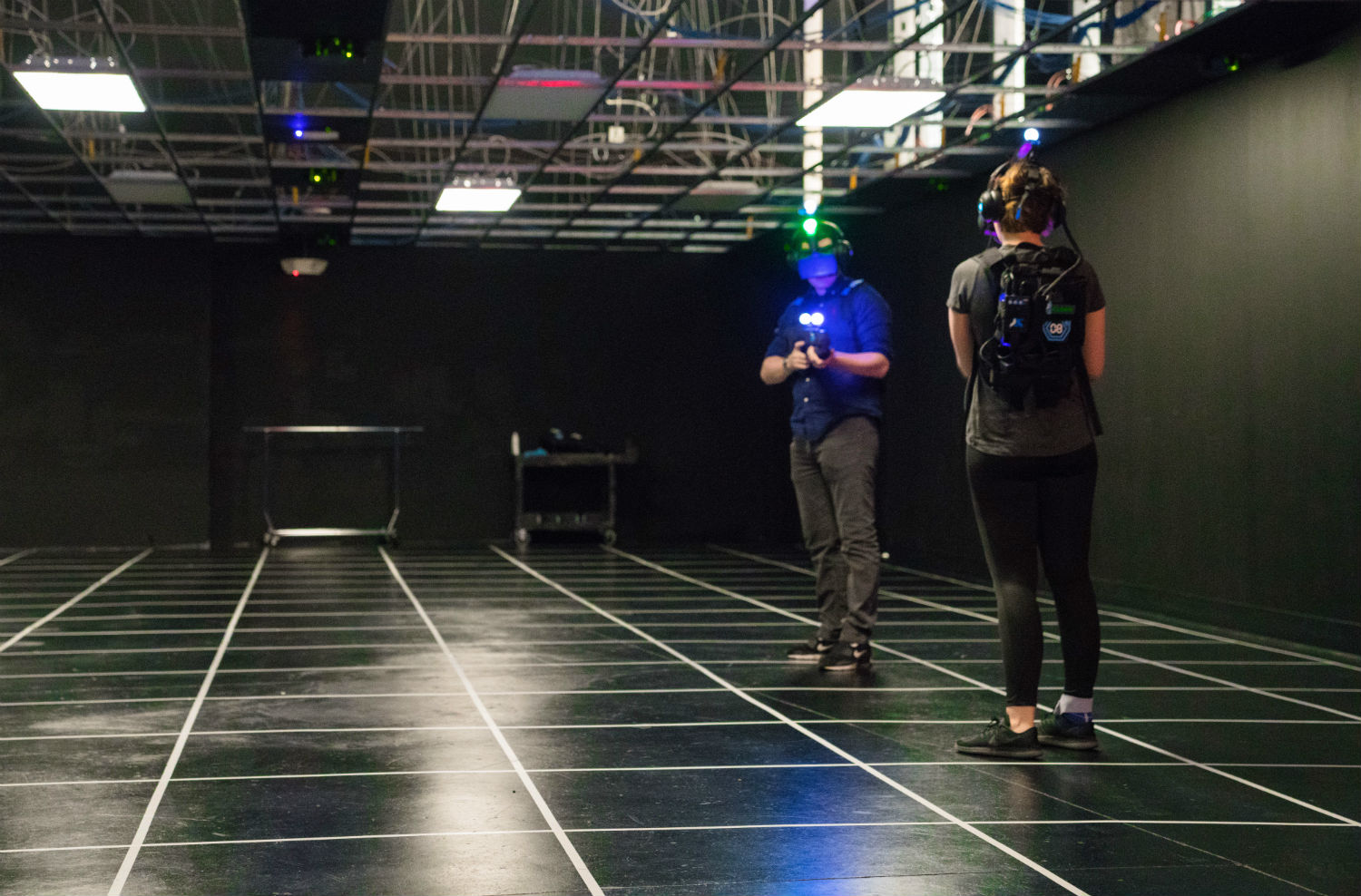Melbourne, Australia-based VR company Zero Latency has partnered with the MGM Grand Hotel & Casino to launch its latest eight-player virtual reality gaming location in the U.S.
The 2,000-square-foot arena, which opened last week, is the latest video game attraction for MGM’s Level Up gaming lounge. And it’s one of 20 Zero Latency arenas in operation around the globe, including locations in Orlando, Boston, Philadelphia, Wisconsin and the Poconos.
Zero Latency co-founders Tim Ruse (CEO) and Scott Vandonkelaar (CTO) told UploadVR that the plan is to add another 30 to 40 arenas by the end of next year with the goal of hitting 100 arenas by the end of 2019.
Zero Latency is building its brand in the location-based VR arcade business through this new partnership with the established MGM brand. Ruse said MGM is putting its full marketing muscle behind this new “Virtual Reality Powered by Zero Latency” arena.
“It’s great to add an arena to another tier one U.S. market, and to partner with a global household name like MGM,” Ruse explained. “Outside of the MGM brand boost and marketing platform, the global destination of Vegas allows us to market Zero Latency to tourists who can play and then pass the word to their friends when they return home.”
In other words, Zero Latency is betting that what happens in VR in Vegas doesn’t stay in Vegas. This arena is the first for the company near the West Coast of the U.S., where rivals like IMAX VR and The Void have opened up location-based arenas in New York and Utah with a Disneyland location featuring The Void’s Star Wars: Secrets of the Empire opening this fall.
Featuring an open space with no obstacles, the arena enables teams to freely explore the virtual environment together. The games have been designed to give the illusion of exploring huge spaceships or alien worlds, while players are steered through the same arena in different ways. While battling through a growing library of games (with three titles available and a fourth launching this month), teammates will see each other as full-motion avatars and stay in constant communication, allowing them to call for backup or ultimately compete for the highest score. There’s also a Zero Latency employee inside the arena with players to set them up for combat and oversee the game.
Players stay in contact with each other through Razer headphones and are outfitted with Razer OSVR HDK2 virtual reality headsets while wearing a military-grade backpack containing a high-performance Alienware laptop computer. There’s also a custom-made, two-handed rifle that offers multiple firing options in-game.
The MGM arena charges $60 per person for a 30-minute gameplay experience. And the VR arena is accessible to younger players through a side entrance that circumvents the casino floor.
All Zero Latency locations currently offer three different multiplayer games, including the tower defense shooter Zombie Survival, the zero gravity shooter Singularity and the puzzle adventure Engineerium. Each game lasts for 30 minutes and allows up to eight players to team up and play together. Vandonkelaar said a new zombie game will launch this fall, which combines elements from the first three games for a more in-depth 30-minute experience.
“Over 100,000 players have gone through our system now, and we’re applying lessons learned from those players and their experiences in our first three games,” Vandonkelaar explained.
“The new zombie game has been designed from the ground up to be an eight-player and we’re adding more intensity and more exploration to this game than our first zombie game has.”
Vandonkelaar said all of these initial games have been created using Unity, but the company is currently working on Unreal Engine 4 games. And this fall they’ll release an API and developer kit for third-party companies to create new games for this platform of VR arenas. Some of these games will enter private trials this fall with 2018 launches planned.
Internally, Vandonkelaar said development is under way for a competitive multiplayer game specifically designed for esports.
“We’re working on new content to allow our players to compete,” Vandonkelaar said. “There are a lot of challenges to make a compelling experience, and we’re limited by the amount of space we have to have in these arenas. But we’re making sure the competition is as fun as possible and is skill-based, so that it has everything else esports needs. We’re coming to the point as we have more sites where teams of people can compete against people who aren’t at the same location.”
“There’s an incredible opportunity for VR esports in our arenas,” Ruse said. “It’s not just about a team’s knowledge of gameplay and skills, but you have to move around the arena and work together to best the opposing team. We see VR esports as part of our near future. We’ve been investigating and working on it and we’re keen to get into that business.”
Zero Latency is also fine-tuning a spectating system for its arenas. This will allow players to stream their play sessions across existing platforms like Twitch and Facebook Live to share with friends. But it will also set up a spectating mode for esports competition.
“Players will be able to stream their VR gameplay to the world quite soon,” Vandonkelaar said. “Everyone will get the chance to see the streams, and players can watch them back afterwards.”
Ruse added that in testing, there’s a real connection that develops through watching players compete in VR because you can hear them communicate and see them move within the game worlds.
“It feels like you’re connecting with an actual person,” Ruse said. “Friends can watch friends play and see and compare high individual and team scores, which should help drive the engagement of people going in to play and stir up the competitive nature of gaming.”
As Zero Latency builds out its esports strategy, Ruse said the company has been talking to brands interested in VR esports.
“There are a lot of companies interested in esports,” Ruse said. “It’s something we can have sorted for next year.”
The esports audience could introduce brand new consumers to the Zero Latency brand. Ruse said the company’s core demographic is comprised of males 25 to 40 years of age globally. And 30% of Zero Latency customers are female.
“The majority of people up to 45 years old are gamers to various degrees,” Ruse said. “Because people are more receptive to playing games, they’re more comfortable with our VR tech and we’re seeing a broader range of people coming through. We’re also seeing a lot of people who are VR curious and want to experience it first-hand.”
MGM is betting big on gaming, adding this Zero Latency VR arcade experience to a growing assortment of skill-based games designed to lure younger crowds. Now visitors to the Las Vegas Strip will be able to escape the real world, and any gambling losses, by entering these VR worlds.




























